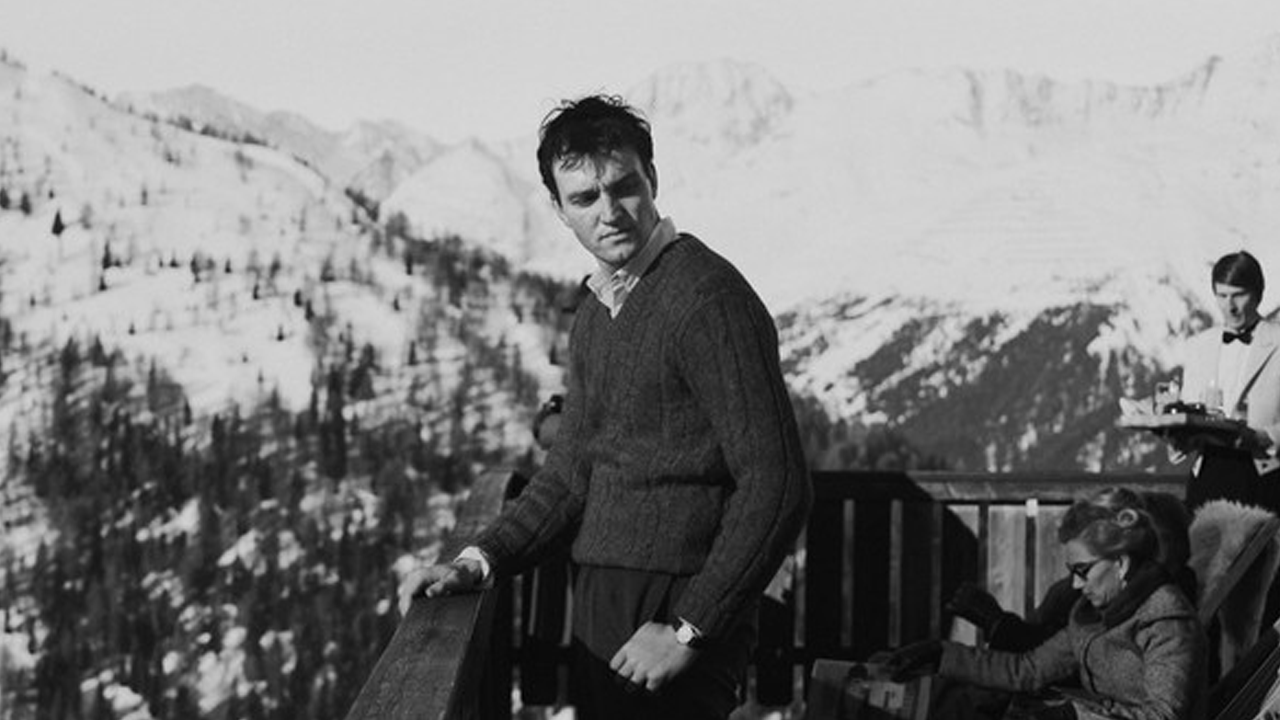The Universal Theory: Film Threat Spotlights and Reviews
Filmmaker Timm Kröger’s crazy new movie, The Universal Theory, is literally everything: a dark mystery, a sci-fi thriller, a romance, a psychedelic trip and a spy movie. There’s quantum mechanics and parallel worlds, grisly murders and a femme fatale, even allusions to Nazism – and it’s all set in the Swiss Alps, is made exceptionally otherworldly by Roland Stupich’s crisp cinematography and eerily simple sound design. Even if Kröger drops some of the balls he’s juggling, it’s still an impressive effort that deserves your attention. After a brief introduction in the style of an early 1970s talk show, the distorted, pixelated images transition to a crisp black-and-white monochrome visual style. Under the guidance of the austere Dr. Strathen (Hanns Zischler), young scientist Johannes (Jan Bülow) embarks on an academic retreat to the Alps. The action takes place in an isolated hotel, both luxurious and almost dilapidated, where strange shenanigans often occur. Artificial clouds cover the sky. A cancerous rash appears because there may be radioactive stones in the area. Avalanches regularly threaten to push people by surprise into bone-breaking snow. There’s an underground tunnel that leads to. what exactly?
Johannes reacts to all this with minimal surprise. He is more interested in pursuing local pianist Karin (Olivia Ross), a mysterious and beautiful vixen who both taunts him and seems to warn him. But when the murders start happening – bloody murders, with victims’ skulls smashed and their brains frozen and frozen – Johannes has no choice but to go down, literally, into the dark depths of a rabbit hole. The ambition of Kröger – and co-author Roderick Warich – is beyond reproach. They tackle heavy themes such as obsession, alienation, postwar paranoia, the search for a compatible partner, existential anxiety and pseudoscience. The stylistic elements don’t quite add up, however: Diego Ramos Rodriguez and David Schweighart’s insistent Bernard Herrmann-style score quickly begins to irritate, especially when contrasted with the quiet silence efficiency of the Alps.
Twenty minutes can easily be shortened. The gradual pace requires some kind of catalyst to keep things moving, and more importantly, the more mysteries the plot throws at us, the more frustrating it becomes. There are only a few film directors capable of creating convincing confusion – and even Lynch has had some major stumbles (see: Lost Highway). Towards the end of the emotional match, Kröger’s goal became more obvious. His ideas crystallize, as if the filmmaker is tightening screws. If only he had tightened them up a little earlier, he could have achieved a truly unique masterpiece – the filmmaker, despite appearing completely confident, sometimes seems as lost as his characters. Animals are equally “confident” as themselves. Universal Theory works in fits and starts but won’t leave audiences completely convinced by its logic.

